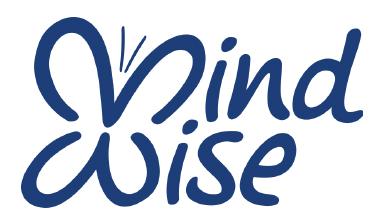Are Panic Attacks Dangerous?
Mental HealthPanic attacks can strike unexpectedly, leaving you feeling overwhelmed and frightened. If you've ever experienced one, you know how distressing it can be. However understanding what happens during a panic attack and knowing how to manage it can make a significant difference in how you cope. Let's delve into this topic and explore effective strategies for dealing with panic attacks.
What Happens During a Panic Attack?
When a panic attack occurs, your body can react in various ways. Some common symptoms include:
- Breathlessness or feeling like you're struggling to breathe
- Racing or pounding heartbeat
- Nausea, dizziness, or feeling faint
- Sweating, trembling, or shivering
- Chest or stomach pain
- Tingling sensations in fingers
- Feeling disconnected from your body
Experiencing these symptoms can be terrifying, but it's essential to remember that panic attacks are not dangerous, and they will pass. Typically, panic attacks last between 5 and 20 minutes, with symptoms peaking within the first 10 minutes before gradually subsiding.
Understanding Panic Disorder
If you frequently experience panic attacks without an apparent trigger, you may be diagnosed with panic disorder, a type of anxiety disorder. Panic disorder can significantly impact your daily life, causing fear of future attacks and avoidance of certain situations or places.
Causes of Panic Attacks
The exact cause of panic disorder remains unclear, but it's believed to involve a combination of factors, including:
- Traumatic or highly stressful life events
- Family history of panic disorder
- Imbalance of neurotransmitters in the brain
Understanding the underlying causes can help guide treatment and management strategies.
Managing Panic Attacks: Strategies for Coping
When you feel a panic attack coming on, several strategies can help you regain control and alleviate symptoms:
- Deep Breathing: Focus on slow, deep breaths to help regulate your breathing and calm your body.
- Acceptance: Acknowledge that what you're experiencing is a panic attack, reassure yourself that it will pass, and remind yourself that it's not life-threatening.
- Grounding Techniques: Engage your senses by focusing on objects around you or engaging in a grounding exercise to reconnect with the present moment.
- Positive Imagery: Visualize yourself in a peaceful, calming environment to counteract feelings of anxiety.
- Seek Support: If possible, confide in a trusted friend or loved one who can offer reassurance and support during the episode.
Self-Help Strategies
In addition to managing panic attacks in the moment, adopting certain lifestyle changes can help prevent future episodes:
- Regular Exercise: Incorporate physical activity into your routine to reduce stress and improve mood.
- Healthy Eating: Maintain a balanced diet to stabilize blood sugar levels and support overall well-being.
- Limit Stimulants: Avoid caffeine, alcohol, and nicotine, as they can exacerbate symptoms of anxiety.
- Mindfulness and Relaxation: Explore mindfulness practices or relaxation techniques to manage stress and promote relaxation.
Seeking Professional Help
If you're struggling to manage panic attacks on your own, don't hesitate to seek professional support. Your doctor can assess your symptoms and recommend appropriate treatment options, which may include:
- Therapy: Cognitive-behavioral therapy (CBT), exposure therapy, or applied relaxation techniques can help address underlying triggers and coping mechanisms.
- Medication: In some cases, medication may be prescribed to alleviate symptoms and support overall mental health.
Conclusion
Panic attacks can be frightening and disruptive, but they are manageable with the right strategies and support. By understanding the nature of panic attacks, practicing coping techniques, and seeking help when needed, you can regain control over your life and minimise the impact of anxiety on your well-being.
















































































